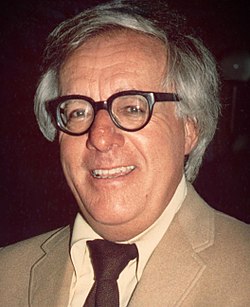Ray Bradbury Quote
Montag said nothing but stood looking at the women's faces as he had once looked at the faces of saints in a strange church he had entered when he was a child. The faces of those enameled creatures meant nothing to him, though he talked to them and stood in that church for a long time, trying to know what that religion was, trying to get enough of the raw incense and special dust of the place into his lungs and thus into his blood to feel touched and concerned by the meaning of the colorful men and women with the porcelain eyes and the blood-ruby lips. But there was nothing, nothing; it was a stroll through another store, and his currency strange and unusable there, and his passion cold, even when he touched the wood and plaster and clay.
Montag said nothing but stood looking at the women's faces as he had once looked at the faces of saints in a strange church he had entered when he was a child. The faces of those enameled creatures meant nothing to him, though he talked to them and stood in that church for a long time, trying to know what that religion was, trying to get enough of the raw incense and special dust of the place into his lungs and thus into his blood to feel touched and concerned by the meaning of the colorful men and women with the porcelain eyes and the blood-ruby lips. But there was nothing, nothing; it was a stroll through another store, and his currency strange and unusable there, and his passion cold, even when he touched the wood and plaster and clay.
Related Quotes
About Ray Bradbury
Bradbury is best known for his novel Fahrenheit 451 (1953) and his short-story collections The Martian Chronicles (1950), The Illustrated Man (1951), and The October Country (1955). Other notable works include the coming of age novel Dandelion Wine (1957), the dark fantasy Something Wicked This Way Comes (1962) and the fictionalized memoir Green Shadows, White Whale (1992). He also wrote and consulted on screenplays and television scripts, including Moby Dick and It Came from Outer Space. Many of his works were adapted into television and film productions as well as comic books. Bradbury also wrote poetry which has been published in several collections, such as They Have Not Seen the Stars (2001).
The New York Times called Bradbury "An author whose fanciful imagination, poetic prose, and mature understanding of human character have won him an international reputation" and "the writer most responsible for bringing modern science fiction into the literary mainstream".
